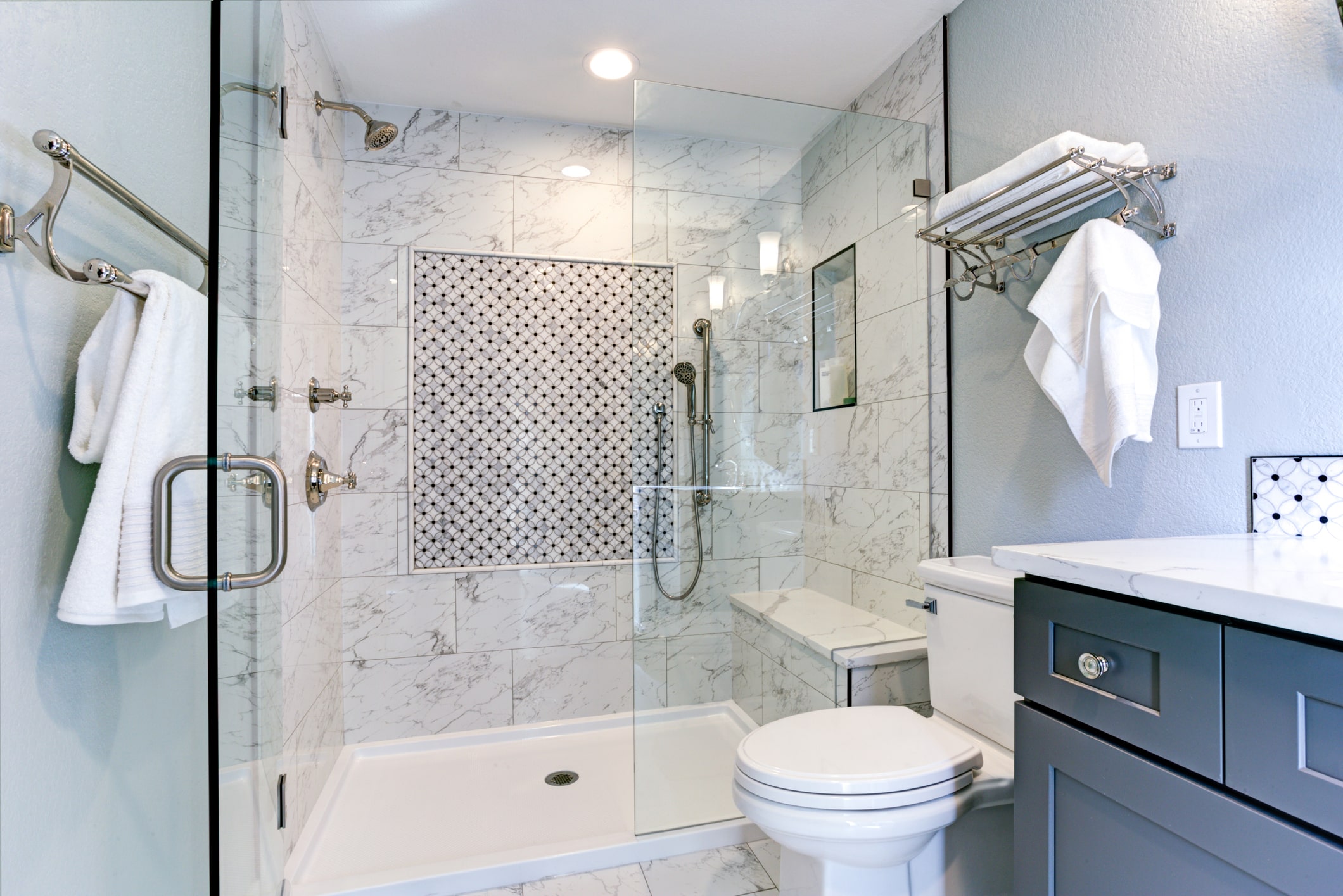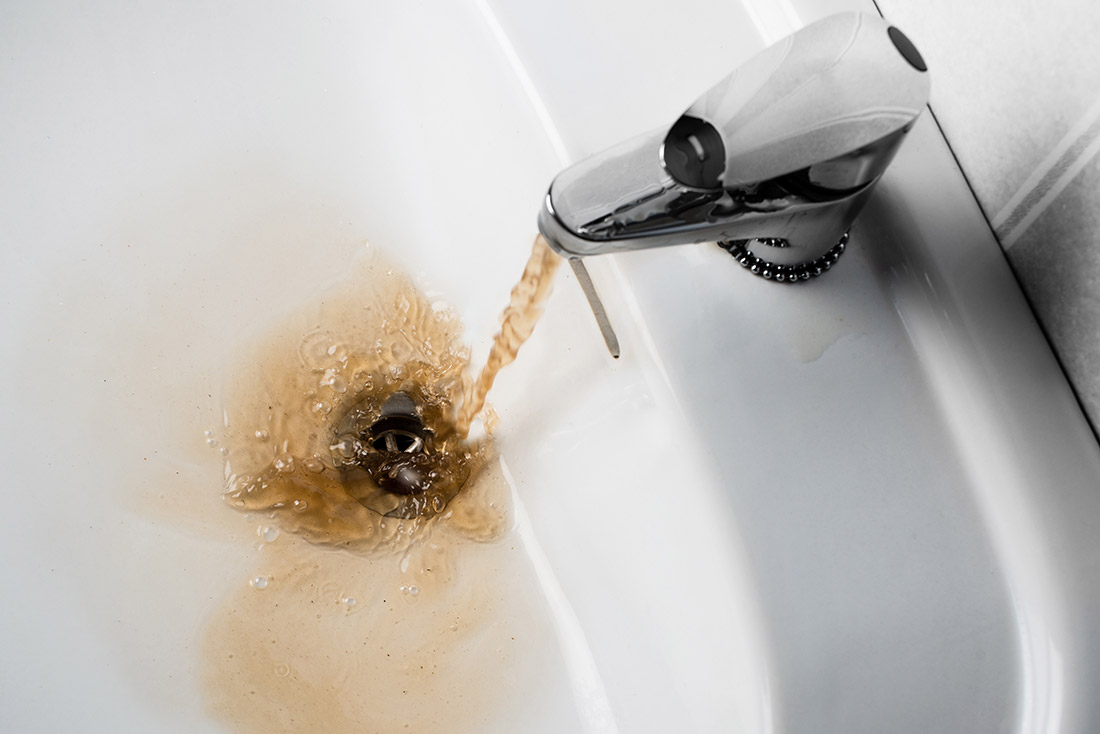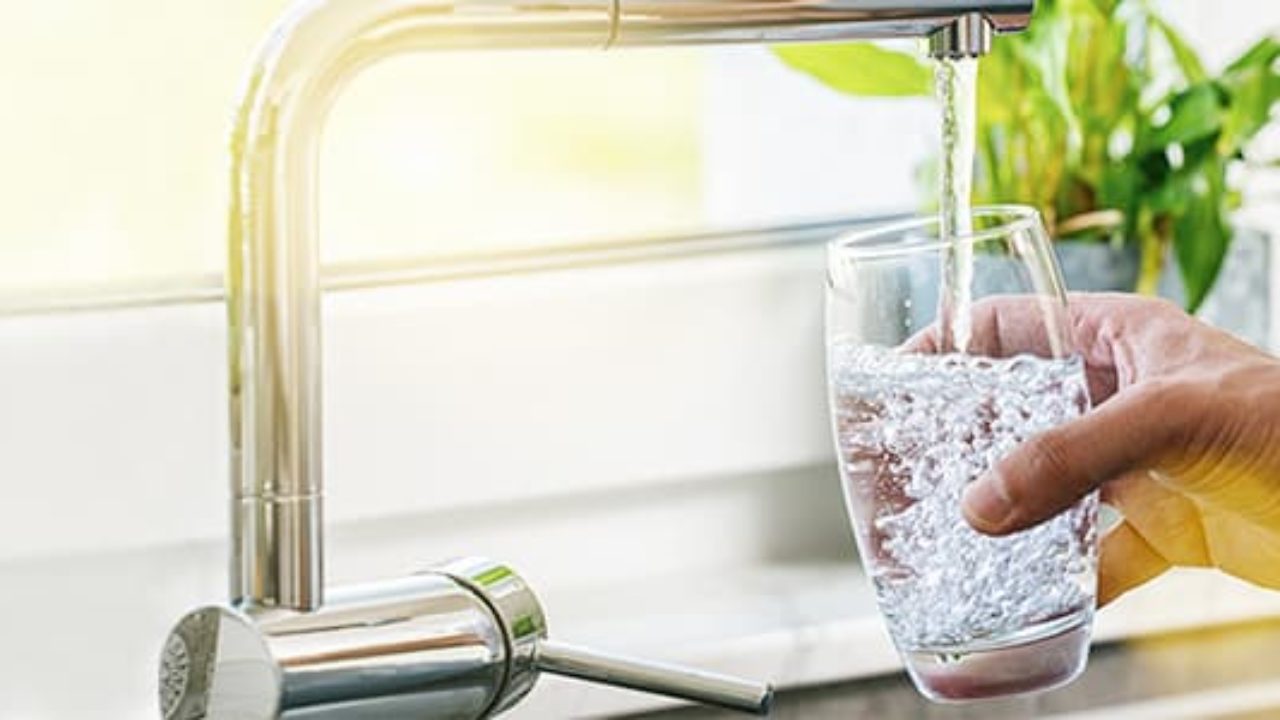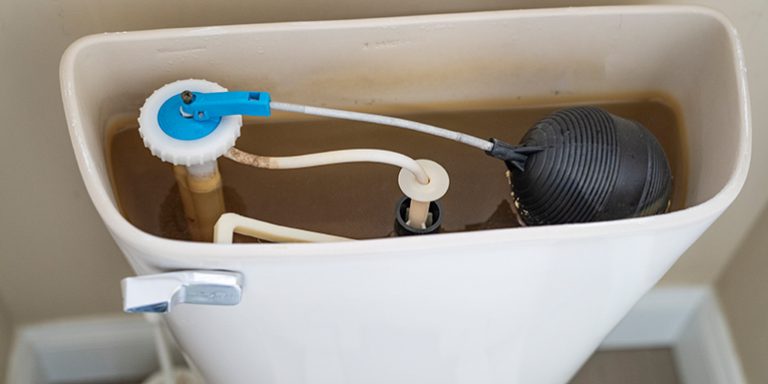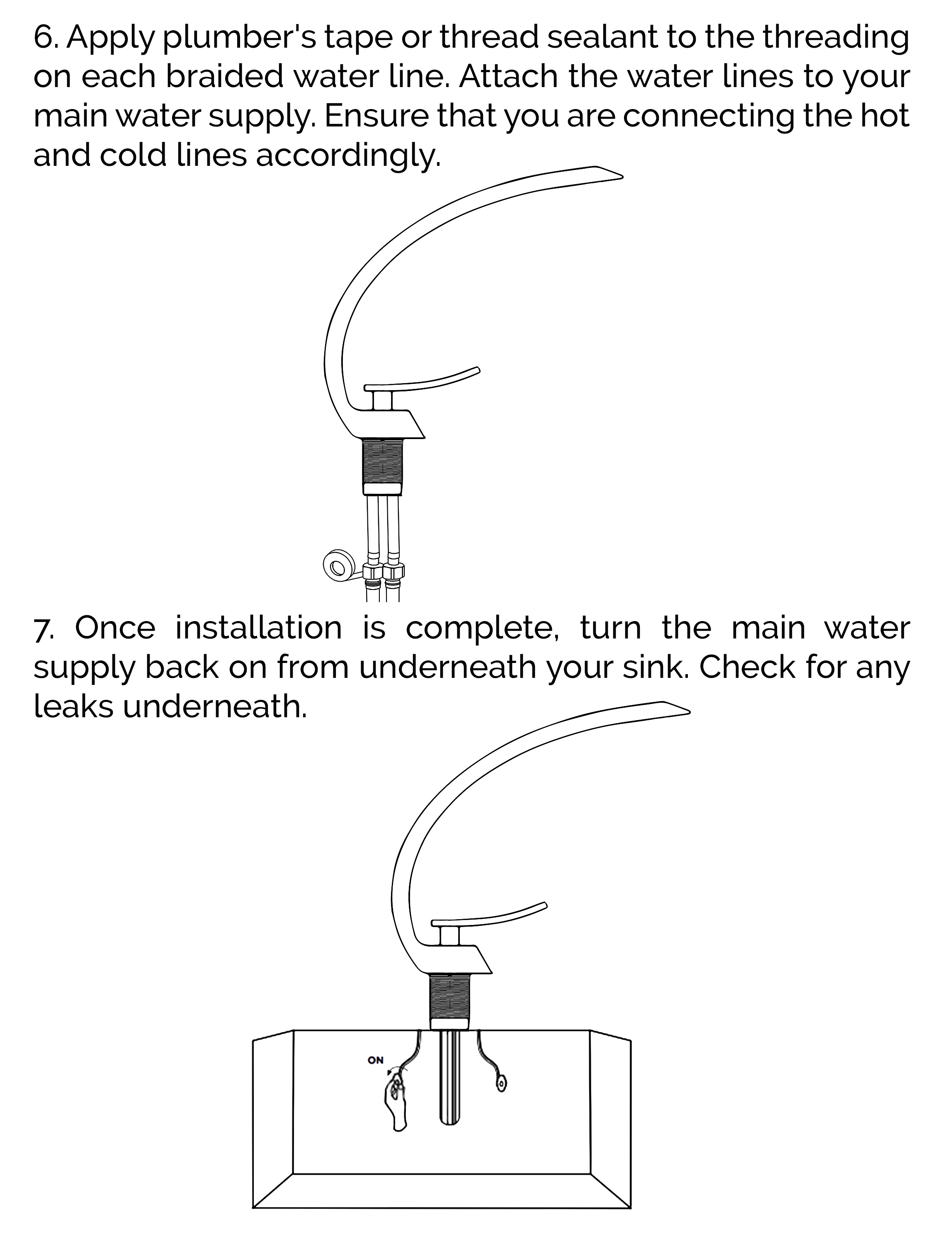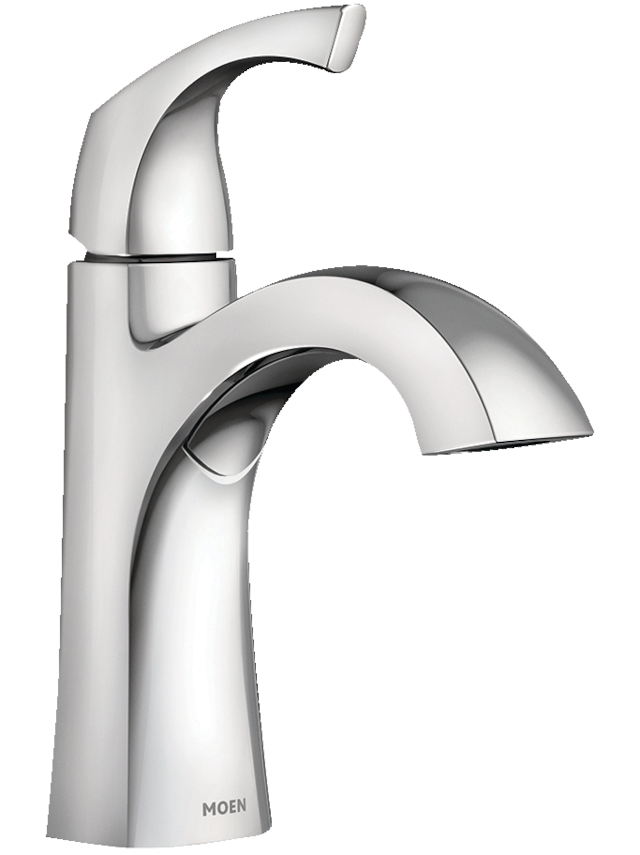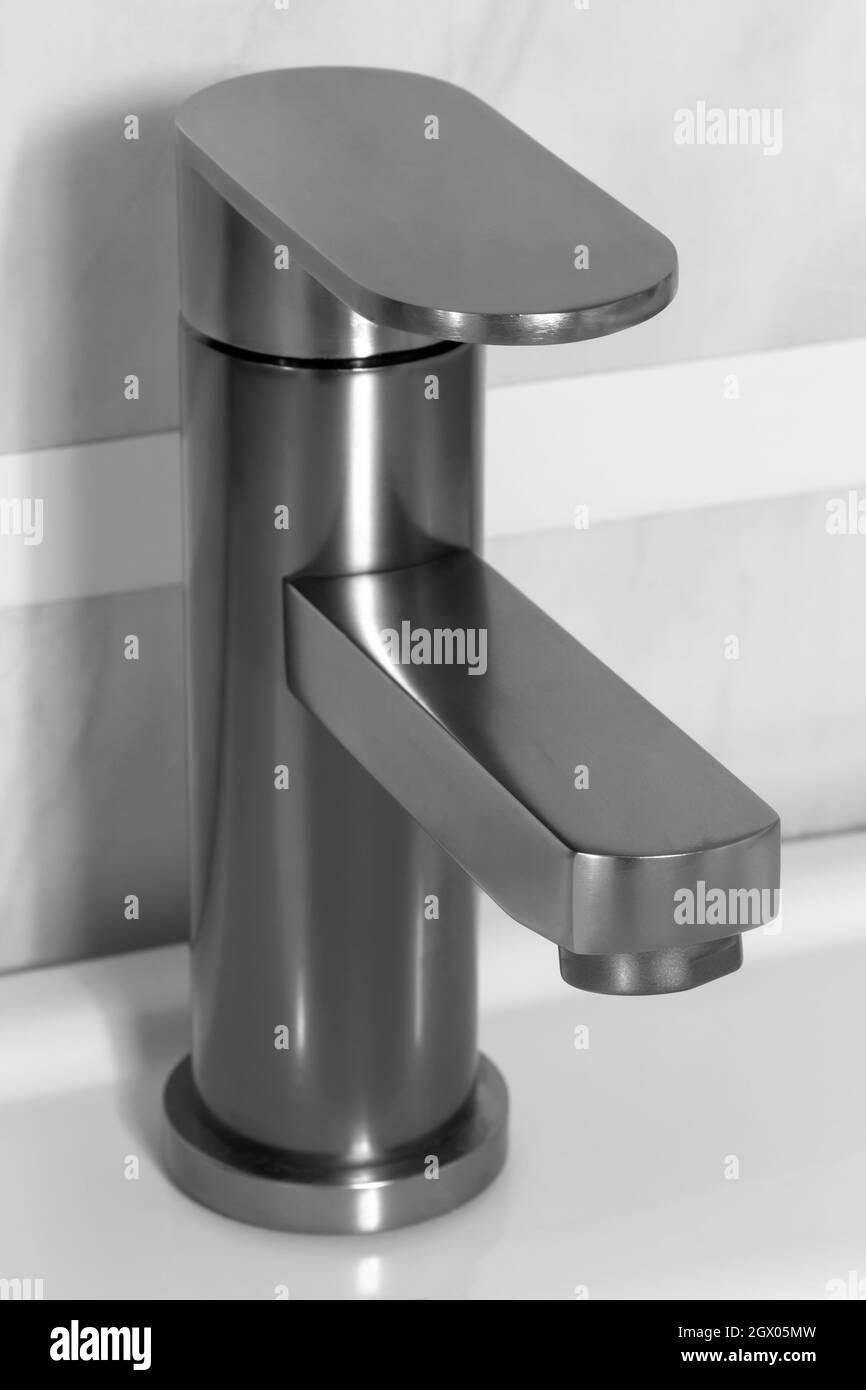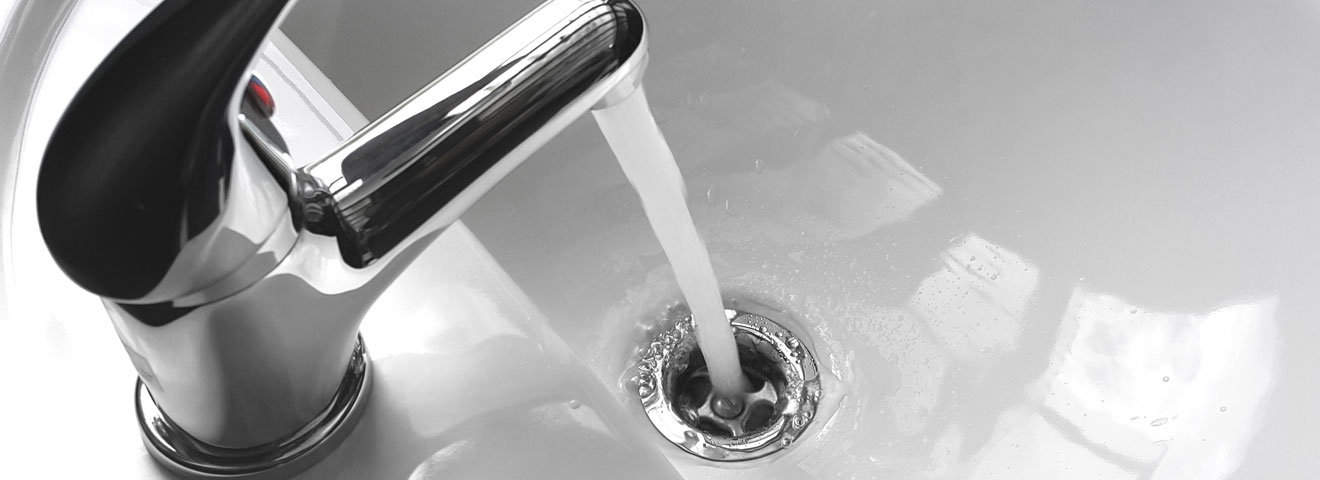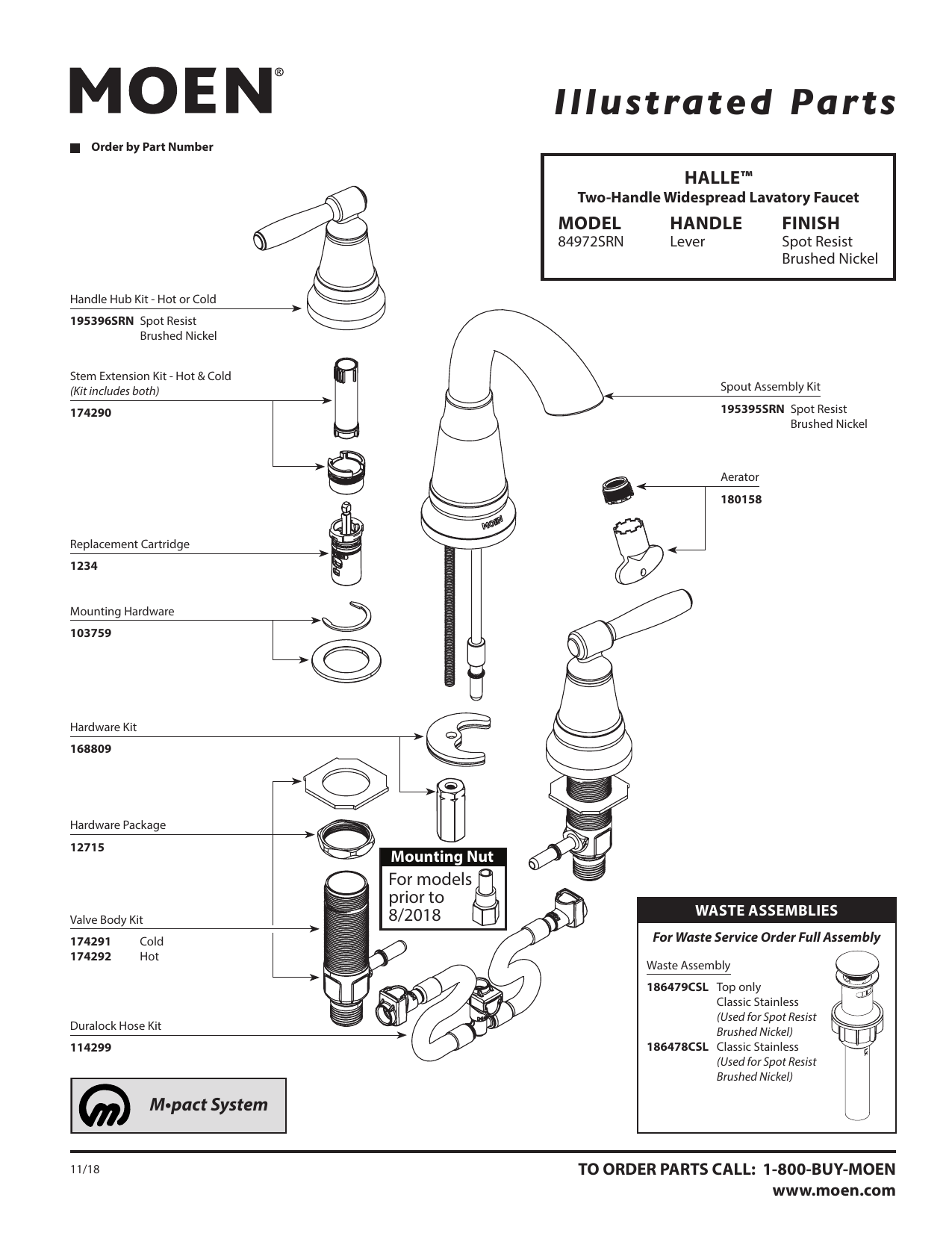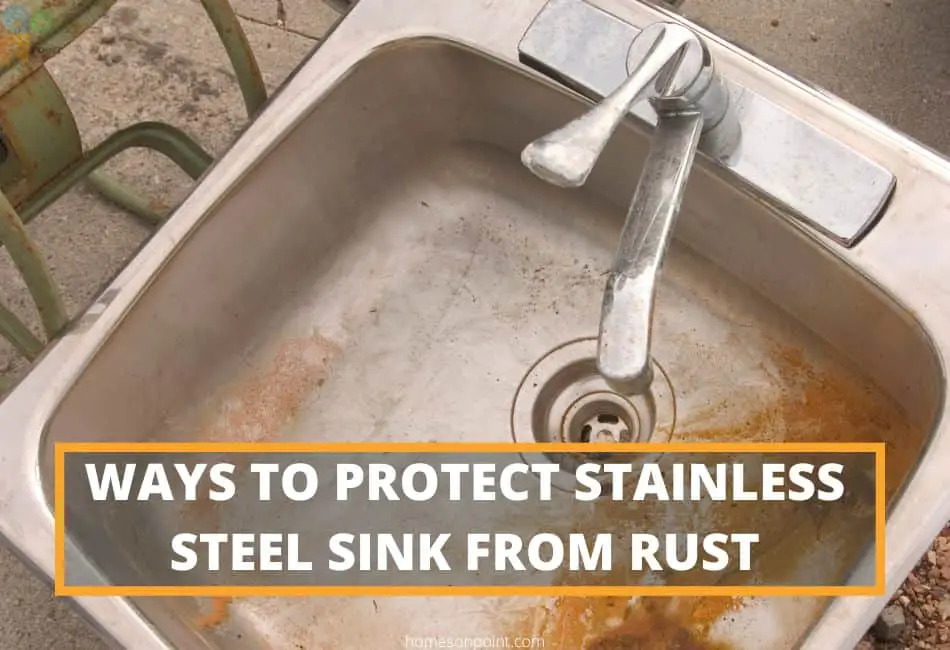There is nothing worse than turning on your bathroom sink faucet and being hit with a strong smell of sulphur. Not only is it unpleasant, but it can also be concerning. So, what causes this unpleasant odour in your faucet water? The most common cause of sulphur smell in bathroom sink faucet water is the presence of sulphur bacteria. These bacteria thrive in environments with low oxygen levels, such as your hot water heater or in the drain pipes. When the bacteria interact with the sulphur in the water, it produces hydrogen sulfide gas, which is what creates the distinctive rotten egg smell. Another possible cause could be a build-up of mineral deposits in your faucet aerator or showerhead, which can also create a sulphur-like smell. This build-up can happen over time, especially in areas with hard water, and it can be easily remedied with regular cleaning.1. Causes of Sulphur Smell in Bathroom Sink Faucet Water
The first step in getting rid of the sulphur smell in your bathroom sink faucet water is to determine the source of the problem. If it is due to sulphur bacteria, a simple solution is to flush out your hot water heater and disinfect it with a chlorine solution. This will kill the bacteria and eliminate the odour. If the issue is with mineral deposits, try soaking your faucet aerator or showerhead in a mixture of equal parts water and vinegar. This will help dissolve and remove any build-up. You can also try using a soft-bristled brush to gently scrub away any deposits. In some cases, replacing old or faulty plumbing fixtures may be necessary to completely eliminate the sulphur smell. If you are unsure of how to proceed, it is best to consult a professional plumber for their expertise.2. How to Get Rid of Sulphur Smell in Bathroom Sink Faucet Water
If you are looking for a more natural approach to getting rid of the sulphur smell in your bathroom sink faucet water, there are a few DIY solutions you can try. One option is to create a mixture of baking soda and water and pour it down your drain. Let it sit for 15 minutes before rinsing it with hot water. This can help clean out any bacteria or build-up in your pipes. You can also try adding a few drops of essential oils, such as tea tree or eucalyptus, to your faucet aerator or showerhead. These oils have natural antibacterial properties and can help eliminate any unpleasant odours.3. DIY Solutions for Sulphur Smell in Bathroom Sink Faucet Water
Aside from sulphur bacteria and mineral deposits, there are a few other common reasons why you may experience a sulphur smell in your bathroom sink faucet water. One possible cause is a broken or faulty anode rod in your hot water heater. This rod is responsible for preventing corrosion in the tank, but if it is damaged, it can create a sulphur smell. Another potential culprit could be a cracked or damaged drain pipe, which can allow bacteria to grow and produce the unpleasant odour. If you have a well system, the presence of sulphur in the water source could also be the cause of the smell. In this case, installing a water filtration system specifically designed to remove sulphur can help alleviate the issue.4. Common Reasons for Sulphur Smell in Bathroom Sink Faucet Water
If you are unsure whether the smell in your bathroom sink faucet water is caused by sulphur or another substance, you can perform a simple test at home to find out. Fill a clear glass with water from your faucet and let it sit for a few minutes. If the water has a strong sulphur smell, it is likely due to sulphur bacteria. You can also test for the presence of hydrogen sulfide gas by adding a few drops of vinegar to the water. If the water turns black, it confirms the presence of sulphur. It is always a good idea to have your water tested by a professional if you are concerned about its quality or if you notice any unusual odours.5. How to Test for Sulphur in Bathroom Sink Faucet Water
If the DIY methods are not effective in eliminating the sulphur smell in your bathroom sink faucet water, it may be time to call in the professionals. A plumber can thoroughly inspect your plumbing system and identify any underlying issues that may be causing the smell. They can also provide more advanced solutions, such as installing a water treatment system or replacing old plumbing fixtures. Investing in professional services may cost more upfront, but it can save you time, hassle, and potential health risks in the long run.6. Professional Solutions for Sulphur Smell in Bathroom Sink Faucet Water
While the smell of sulphur in your bathroom sink faucet water may be off-putting, it is not necessarily harmful to your health. However, it is important to address the issue to prevent any potential risks. Exposure to high levels of hydrogen sulfide gas can cause irritation to the eyes, nose, and throat, as well as dizziness and nausea. It can also affect the taste of your water and make it unpalatable. Furthermore, if the sulphur smell is caused by sulphur bacteria, it can also indicate the presence of other harmful bacteria in your plumbing system. This can pose a health risk, especially for those with weakened immune systems.7. Health Risks of Sulphur Smell in Bathroom Sink Faucet Water
The best way to prevent a sulphur smell in your bathroom sink faucet water is to practice regular maintenance and care for your plumbing system. Flushing out your hot water heater and regularly cleaning your faucet aerator and showerhead can help prevent the build-up of bacteria and mineral deposits. You can also consider installing a water filtration system to remove any impurities or chemicals that may be causing the smell. If you have a well system, it is important to have your water tested regularly and to address any underlying issues that may be contributing to the sulphur smell.8. How to Prevent Sulphur Smell in Bathroom Sink Faucet Water
There are many misconceptions surrounding the sulphur smell in bathroom sink faucet water. One common misconception is that the smell is a sign of contaminated or dirty water. In most cases, the smell is caused by harmless bacteria or mineral deposits and does not pose a health risk. Another misconception is that the smell will go away on its own. While it may dissipate temporarily, it is important to address the root cause of the smell to prevent it from recurring.9. Common Misconceptions about Sulphur Smell in Bathroom Sink Faucet Water
The sulphur smell in your bathroom sink faucet water may seem like a minor inconvenience, but it is important to address it to maintain the quality of your water and prevent potential health risks. Regular maintenance and cleaning of your plumbing system, as well as addressing any underlying issues, can help eliminate the sulphur smell and ensure that your water is safe for everyday use. If you are unable to resolve the issue on your own, do not hesitate to seek professional help. In conclusion, while a sulphur smell in your bathroom sink faucet water may seem like a daunting problem, it can be easily remedied with the right approach. By understanding the causes and taking the necessary steps to address them, you can enjoy clean and odour-free water in your bathroom sink. Don't let the smell of sulphur ruin your daily routine – take action today to eliminate it for good.10. Importance of Addressing Sulphur Smell in Bathroom Sink Faucet Water
The Importance of Choosing the Right Bathroom Sink Faucet

Understanding the Issue of Sulphur-Smelling Water
 When it comes to designing our homes, we often focus on the big picture - the layout, the furniture, the color scheme. However, it's important not to overlook smaller details that can have a big impact on our daily lives, such as the
bathroom sink faucet
. A common issue that many homeowners may encounter is the smell of sulphur coming from their faucet water. Not only is this unpleasant, but it may also indicate a larger problem with your plumbing system.
When it comes to designing our homes, we often focus on the big picture - the layout, the furniture, the color scheme. However, it's important not to overlook smaller details that can have a big impact on our daily lives, such as the
bathroom sink faucet
. A common issue that many homeowners may encounter is the smell of sulphur coming from their faucet water. Not only is this unpleasant, but it may also indicate a larger problem with your plumbing system.
What Causes Sulphur-Smelling Water?
 The presence of sulphur in your faucet water is due to the presence of hydrogen sulfide gas. This gas is produced by bacteria in your water supply or in your plumbing system. The bacteria can enter your water supply through various sources such as groundwater, well water, or even the pipes in your home. When the gas mixes with the water, it creates the distinct smell of rotten eggs.
The presence of sulphur in your faucet water is due to the presence of hydrogen sulfide gas. This gas is produced by bacteria in your water supply or in your plumbing system. The bacteria can enter your water supply through various sources such as groundwater, well water, or even the pipes in your home. When the gas mixes with the water, it creates the distinct smell of rotten eggs.
The Dangers of Sulphur-Smelling Water
 Aside from the unpleasant smell, sulphur-smelling water can also have negative effects on your health. Inhaling high levels of hydrogen sulfide gas can cause irritation to the eyes, nose, and throat. It can also lead to respiratory issues and aggravate existing conditions such as asthma. Furthermore, the bacteria that produce this gas can also be harmful if ingested, causing digestive issues.
Aside from the unpleasant smell, sulphur-smelling water can also have negative effects on your health. Inhaling high levels of hydrogen sulfide gas can cause irritation to the eyes, nose, and throat. It can also lead to respiratory issues and aggravate existing conditions such as asthma. Furthermore, the bacteria that produce this gas can also be harmful if ingested, causing digestive issues.
Choosing the Right Faucet to Combat Sulphur-Smelling Water
 The first step in addressing this issue is to have your water supply tested to determine the source of the sulphur. If the problem lies within your plumbing system, you may need to consult a professional plumber to fix any underlying issues. However, choosing the right bathroom sink faucet can also play a crucial role in combatting sulphur-smelling water. Opt for
high-quality faucets
that are made from materials that are resistant to corrosion and bacteria growth. This will not only help eliminate the smell but also ensure the safety of your water supply.
The first step in addressing this issue is to have your water supply tested to determine the source of the sulphur. If the problem lies within your plumbing system, you may need to consult a professional plumber to fix any underlying issues. However, choosing the right bathroom sink faucet can also play a crucial role in combatting sulphur-smelling water. Opt for
high-quality faucets
that are made from materials that are resistant to corrosion and bacteria growth. This will not only help eliminate the smell but also ensure the safety of your water supply.
Regular Maintenance and Proper Cleaning
 To prevent the build-up of bacteria in your faucet, it's important to perform regular maintenance and cleaning. This includes regularly changing your faucet's aerator and cleaning it with a solution of water and vinegar. You should also flush your water supply by running the faucets for a few minutes each day to prevent stagnant water from collecting in your pipes.
To prevent the build-up of bacteria in your faucet, it's important to perform regular maintenance and cleaning. This includes regularly changing your faucet's aerator and cleaning it with a solution of water and vinegar. You should also flush your water supply by running the faucets for a few minutes each day to prevent stagnant water from collecting in your pipes.
Investing in a Water Filtration System
 Another solution to combat sulphur-smelling water is to invest in a water filtration system. This will not only improve the taste and smell of your water but also remove any harmful bacteria and contaminants. There are various options available, from whole-house filtration systems to faucet-mounted filters, so choose one that best fits your needs and budget.
In conclusion, choosing the right
bathroom sink faucet
is crucial in maintaining a healthy and pleasant home environment. Don't overlook the impact of this small but important feature in your house design. By understanding the issue of sulphur-smelling water and taking the necessary steps to address it, you can ensure a safe and enjoyable experience every time you turn on your faucet. Remember to regularly maintain and clean your faucet, and invest in a water filtration system to combat this common issue.
Another solution to combat sulphur-smelling water is to invest in a water filtration system. This will not only improve the taste and smell of your water but also remove any harmful bacteria and contaminants. There are various options available, from whole-house filtration systems to faucet-mounted filters, so choose one that best fits your needs and budget.
In conclusion, choosing the right
bathroom sink faucet
is crucial in maintaining a healthy and pleasant home environment. Don't overlook the impact of this small but important feature in your house design. By understanding the issue of sulphur-smelling water and taking the necessary steps to address it, you can ensure a safe and enjoyable experience every time you turn on your faucet. Remember to regularly maintain and clean your faucet, and invest in a water filtration system to combat this common issue.


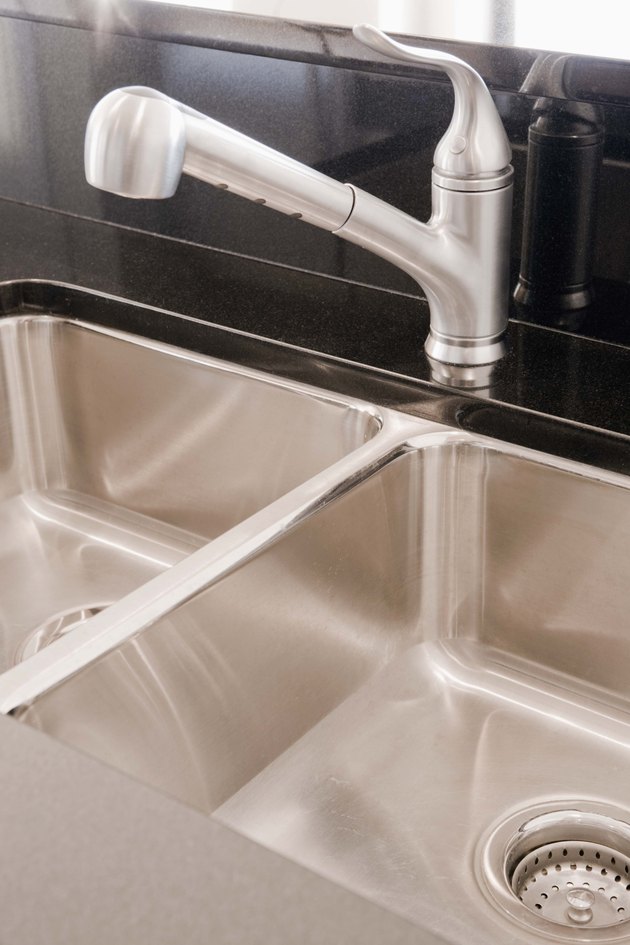
:max_bytes(150000):strip_icc()/sink-pipe-under-wash-basin-119001607-6f28aec4c66944efb7a9a38cb622ab8b.jpg)




